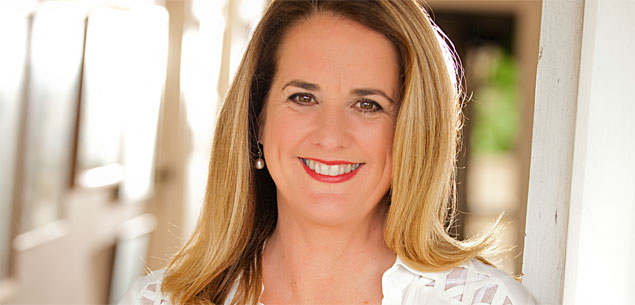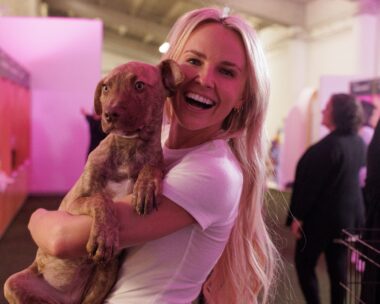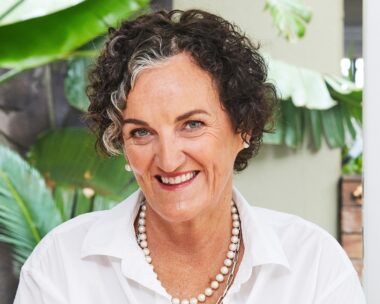It could happen any day now, reckons Wendyl Nissen. She’ll be about to bowl in the front doors of her local supermarket when a staff member will stop her in her tracks and tell her, “You’re banned.”
“I’m half expecting it,” says Wendyl. That’s because her latest book, Wendyl Nissen’s Supermarket Companion, is less than complimentary about supermarkets that stock foods full of additives, including colours that have been banned overseas. The book’s only just been published but she’s already had an email from a supermarket company executive wanting to have a meeting with her about it.
So far she’s declined, but Wendyl laughs as she says it wouldn’t come as a huge surprise if she was told she wasn’t welcome in their stores. “I don’t care,” the forthright media personality and author says. “What I care about is this food that people are eating that is full of this terrible stuff.
You think that if a supermarket is stocking it then it should be okay but in fact the shelves are full of products that contain all kinds of nasty additives. They should be monitoring what they sell to make sure they don’t contain toxic substances, but they don’t. It’s all about making money.”
If the Weekly columnist sounds as if she’s got a bee in her bonnet then that’s because she has. First she got all fired up about cleaning and beauty products packed full of chemicals, and replacing them with homemade versions using only natural ingredients. Out of that has come several books and Wendyl’s Green Goddess, a successful business selling her products.
The logical next step has been to investigate substances added to what we eat. For the last couple of years Wendyl has been trying to eat only “old-fashioned” foods her nana would recognise – and writing about them in her Weekly column, Nana’s Pantry. She has also been analysing what’s in everyday supermarket foods for a column she writes for the New Zealand Herald, Wendyl Wants to Know, and this has convinced her we should cut out processed products from our diets.

A peek into the pantry of her Auckland home reveals Wendyl (50) practises what she preaches. There are lots of herbs and spices, flax seeds, honey, oats, our and bean sprouts. Yes, there are tins of tomatoes, tuna and baked beans – still all pretty healthy – but no sign of cardboard boxes containing ready-meals.
The fridge is stuffed with vegetables and an old-fashioned egg stand with eggs laid by Wendyl’s chooks sits on the dining table. The only “naughty foods” you’ll find are a packet of chocolate chip cookies in a kitchen drawer along with a small selection of treats, including packets of nuts and seeds, for her daughter Pearl (14).
The only other processed foods that make it over the threshold are those Wendyl scrutinises for her Herald column and when she’s finished writing about them, they go in the bin.
These days Wendyl’s favourite food is mince on toast. She eats a lot more vegetables than she used to, some of which she’s grown herself, and makes her own sourdough bread and Bircher muesli. It’s a far cry from the days when she paid no attention to what was in her food. She cringes as she recalls a memory from the mid-1990s when she was the editor of the Weekly.
“I came into work hung over one day, and the publisher caught me at my desk eating a pie and drinking a can of Coke for breakfast. Classy! The thought of doing that now fills me with horror. I can’t imagine anything worse than having all those preservatives for breakfast.
“If you’d told me when I was 30 that at 50 I’d be this hippy who made her own cleaning products and didn’t eat anything processed, I’d have laughed at you. But this is me now. I will never go back to how I was,” she adds.
The one thing Wendyl does miss is Twisties, and she has found it hard to cut back on wine, although she drinks less than she used to. She has noticed definite improvements in her health. “I used to get sick all the time with colds and I don’t any more. And I’ve got so much more energy.”
Although she tries to do most of her shopping locally, she still goes to the supermarket – but not near the processed food aisles. She points out that there are good, natural, additive-free foods in supermarkets but it’s important to know which ones to steer clear of. That’s where she hopes people will use her book as a resource: she’s included information about additives and foods that contain them, along with recipes.
“I hope people will find it useful,” she says. “And I hope they’ll see that if I can be additive-free, anybody can!”




